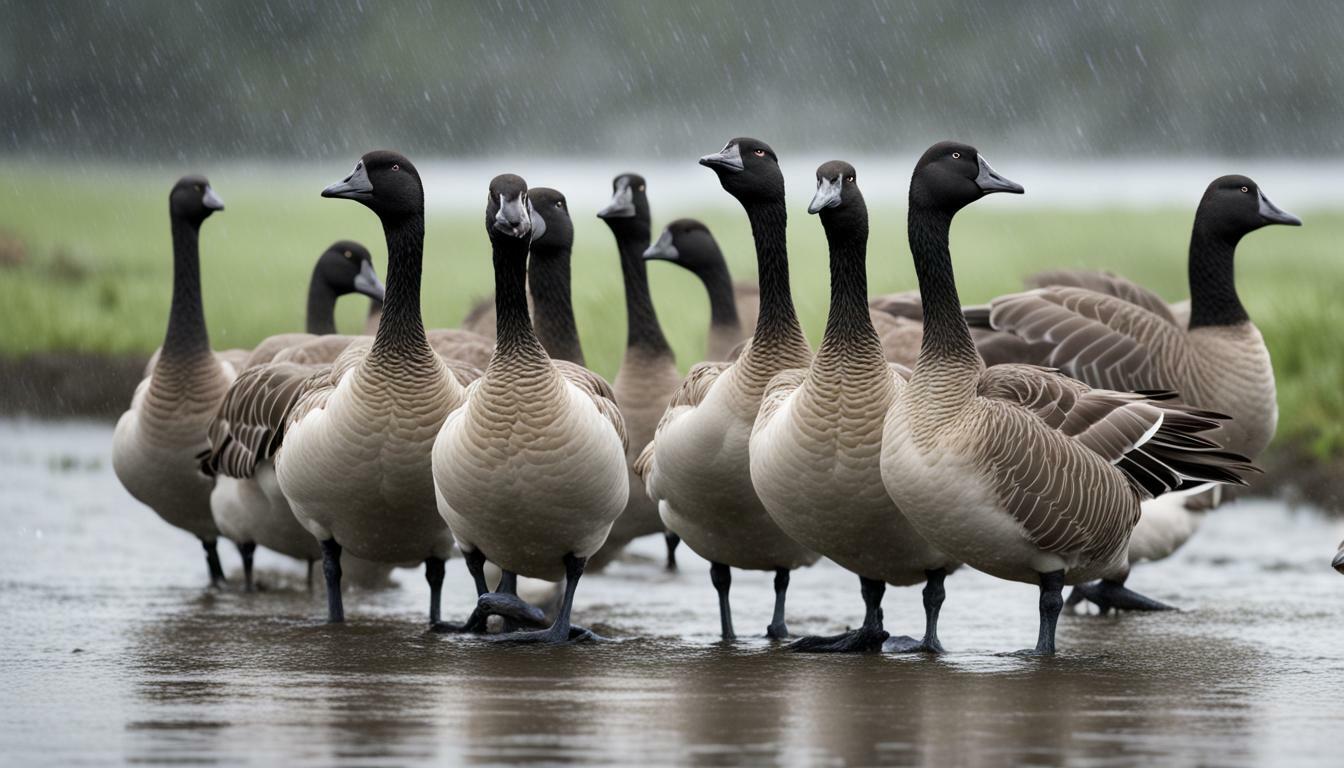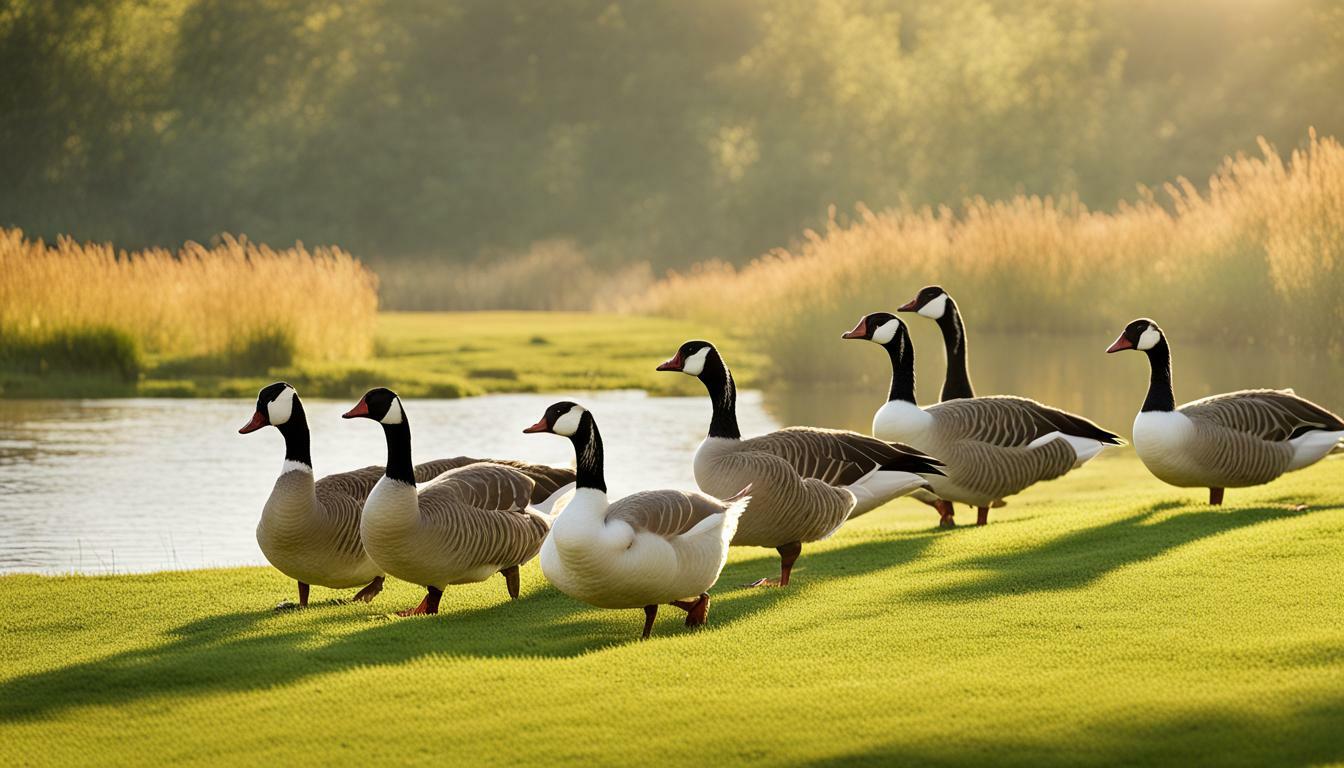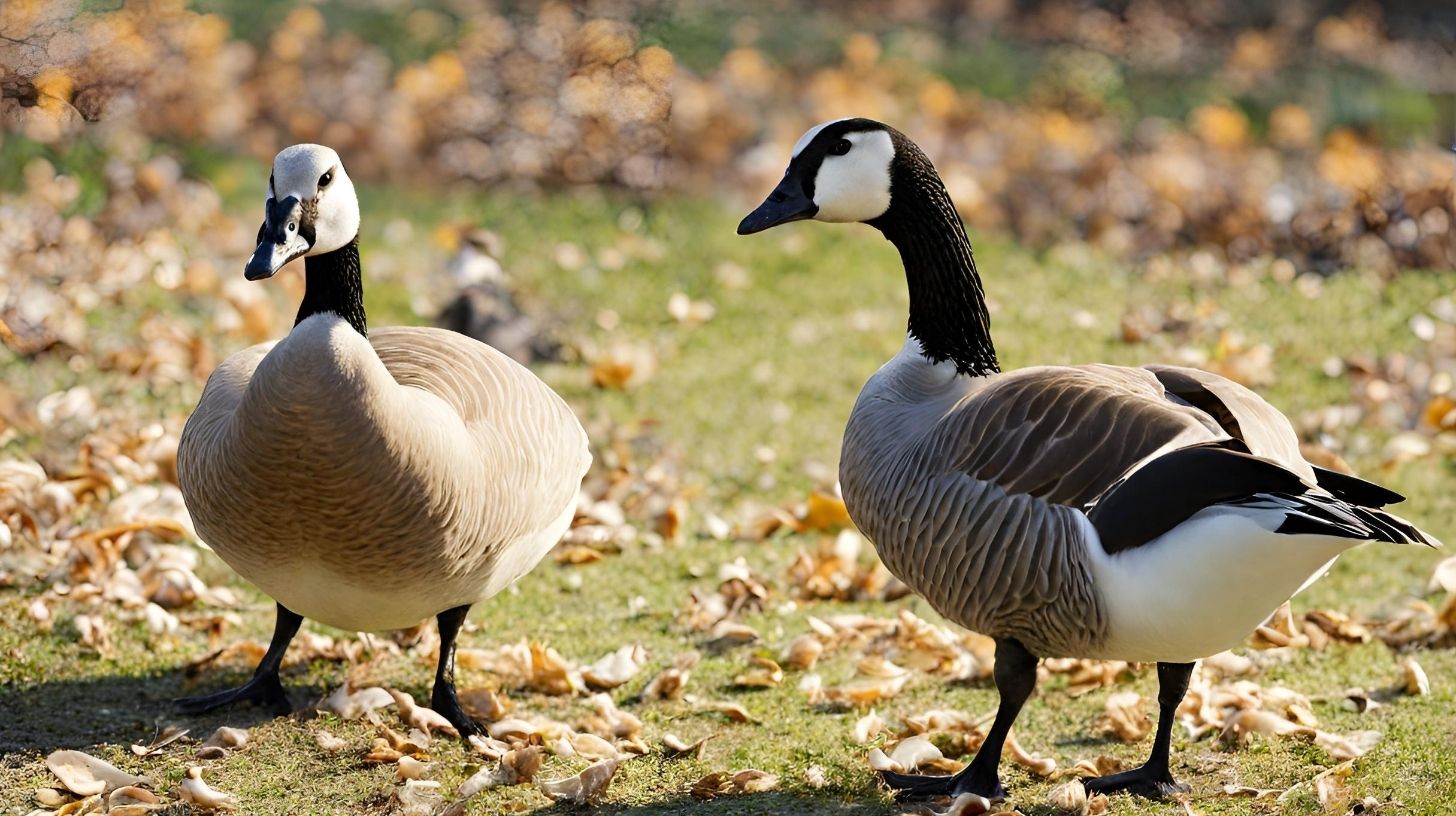Do Geese Like Rain? Exploring the Question

Table of content:
Geese are waterfowl known for their V-shaped flying formation and honking calls. As aquatic birds, geese have a close relationship with water and wetland environments. This raises the question – do geese like rain? Below, we’ll explore how precipitation impacts geese and their behavior.
Why Geese Enjoy Water
Geese feast on moist vegetation near ponds, rivers, marshes, and lakes. Their diet consists of aquatic plants, grasses, seeds, and invertebrates. Access to water helps geese find nourishment and maintain their feather condition.
Geese preen their plumage to spread waterproof oils. This keeps their feathers sleek and buoyant for swimming and floating. Rain showers further distribute these protective oils.
When foraging and traveling over land, proximity to water allows geese to rehydrate and bathe. They drink by submerging their head and scooping up water. Geese cool down with a dip on hot days.
Wetlands offer shelter for nesting and raising goslings. Adults molt their flight feathers simultaneously in mid-summer. Ponds provide a place to rest until their wings grow back.
Overall, geese flock to wet habitats because water sustains their lifestyle. But does this mean they specifically enjoy rainy weather? Let’s take a closer look.
How Geese React to Rainfall
During light spring showers, geese often continue their daily routines. When the rain picks up, geese seek shelter under trees, bushes, or rooftops. Hard rainfall makes it difficult for them to see and hear approaching predators.
While geese avoid heavy storms, they handle moderate rain well thanks to their oiled plumage. The rain rolls right off their feathers, keeping their skin dry underneath. Geese may even bathe if conditions aren’t overly wet.
Canada geese nest on the ground in grassy areas near water. The female lines the nest with down feathers plucked from her breast to insulate the eggs. If caught in the rain, she covers the eggs with her body and wings to block wind and precipitation.
Goslings hatch in the spring, often encountering April showers. The fledglings tolerate light rain thanks to their downy coats. But cold heavy rain can be dangerous for young goslings. They may huddle next to their parents for warmth until storms pass.
Do Geese Fly and Migrate in the Rain?
Geese generally avoid migrating in harsh weather. They time their migrations to match ideal conditions. Flocks travel north in spring when temperatures warm, food sources sprout, and precipitation lessens. Heavy rain, wind, and poor visibility increase their flight risk.
However, geese may suddenly encounter storms mid-migration. Their strong wings allow them to fly through light to moderate rain. But geese stop to wait out heavy rainfall en route. This avoids overworking their flying muscles in unfavorable conditions.
Resident geese may still take short flights in rain showers. But they tend to stay grounded in extreme wet weather. Safety is their top priority, especially around tall buildings or trees that reduce visibility.
Impact of Rain on Goose Habitats and Behavior
The effect of rain depends on the season, temperature, and quantity. Here’s how precipitation influences goose habitats and activities:
- Spring showers fill wetland areas for goslings to swim and find food. But cold heavy rain can be dangerous for young birds.
- Summer rain provides relief from heat and a chance to bathe. But downpours may flood nesting sites.
- In fall, occasional rain keeps waterfowl habitats hydrated for migrating flocks. But storms hinder longer journeys south.
- Winter rain leaves geese wet and chilled. They conserve energy by staying tucked in sheltered spots.
- Light rain allows geese to forage and preen. But visibility declines in heavy rainfall, making them extra cautious.
- Steady precipitation encourages more time to rest. Geese wait for fair weather to resume active behaviors.
- Heavy prolonged rain may force geese to seek alternate shelter if their habitat floods.
While geese rely on water, excessive rain has disadvantages. Moderate showers are optimal for their needs.
Do Geese Stay Warm in Wet Weather?
Geese are resilient to dampness thanks to their specialized feathers. Their oily coat sheds precipitation and insulates body heat. If chilled, geese fluff up their plumage to capture more warmth.
Shivering generates internal warmth. Geese may also tuck their bill underneath their wing to reduce heat loss. Huddling together in a flock offers added insulation against wet conditions.
During cool rains, geese seek shelter in dense bushes, trees, or structures. If grounded by storms, they limit their activity to conserve calories. Resting tucked in one leg or sleeping aids their energy savings.
Wet snowfall and icy rain pose greater risks. The extra weight of frozen precipitation drags down feathers. Extreme cold rapidly saps body heat. These wintery conditions may lead geese to migrate sooner than planned.
Final Thoughts
Geese appreciate rainy weather in moderation. Light to medium rainfall contributes moisture to their wetland habitats without major downsides. But geese seem to dislike heavy rain, which hinders their vision, flight, and temperature regulation.
Rather than liking rain itself, geese favor the results it brings. Rain fills ponds and waterways for drinking, washing, and feeding. But more than a refreshing shower, geese desire fair weather for safe travel, foraging, and nesting.
Overall, geese tolerate and benefit from mild rainy conditions. Just don’t expect to see them out celebrating during fierce thunderstorms! Their rain affinity has its limits within their daily routines and survival needs.
Welcome. I’m Adreena Shanum, the proud owner of this website, and I am incredibly passionate about animals, especially poultry. I founded adreenapets.com as a labor of love, stemming from my desire to share my knowledge and experiences with poultry enthusiasts worldwide.




